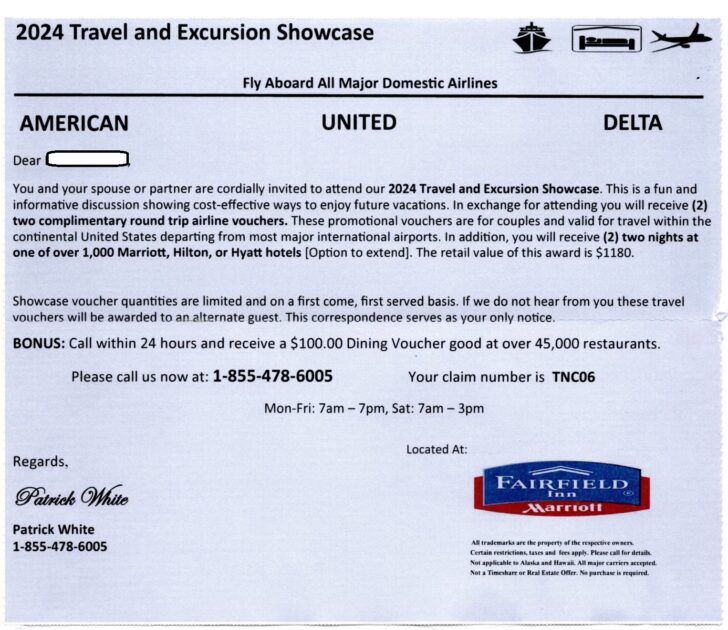Traveling is one of the greatest joys in life. It opens up the world, introduces us to different cultures, and creates beautiful memories. However, the travel industry isn’t without its dark corners, especially regarding scams aimed at unsuspecting travelers. One of the most notorious scams is the travel and excursion showcase scam, which can leave you feeling frustrated and financially drained. In this article, we’ll delve into how these scams operate, share personal experiences, and equip you with the knowledge to protect yourself.
What is a Travel and Excursion Showcase Scam?
Travel and excursion showcase scams typically involve aggressive marketing tactics that lure individuals with the promise of free or discounted travel packages in exchange for attending a presentation. These presentations often take place in unfamiliar venues where unsuspecting travelers are sold overpriced vacation packages or memberships that don’t deliver on their promises.
How These Scams Operate
Scammers often use alluring advertisements, claiming to offer free stays at hotels or discounted excursions. They usually require attendees to RSVP, which then leads to an invitation for a high-pressure sales pitch. Here’s a typical flow:

- The Lure: Free trips or heavily discounted packages broadcasted through social media ads or email spam.
- The Hook: Attendees must attend a presentation, often promising free gifts or meals.
- The Pitch: Hard-selling expensive vacation packages with limited time offers.
- The Outcome: Many end up purchasing memberships that are hard to cancel and don’t offer actual value.
Personal Experience: Falling for the Scam

Several years ago, my partner and I received a tempting email about a free stay at an all-inclusive resort in Mexico. Eager for a getaway, we signed up for the presentation, which was held at a hotel nearby. The lure of a free vacation kept us attentive, but as the hours dragged on, we realized we were being sold a high-pressure sales pitch. By the end of the evening, we had spent hours listening to promises that sounded too good to be true—and thankfully we walked away without purchasing anything. This eye-opening experience taught us to be vigilant and to trust our instincts.
Common Red Flags to Watch Out For

Recognizing the signs of a travel scam can save you from wasted time and money. Here are the key red flags:
1. Unsolicited Offers
Always be cautious about unsolicited emails or messages offering free trips. If it appears too good to be true, it probably is.

2. High-Pressure Sales Tactics
If the salesperson is overly aggressive about making a sale, it’s a significant warning sign. Trust your gut and remember that you should never feel forced to make a decision on the spot.
3. Lack of Clarity
Legitimate companies will provide clear information about their offers. If you can’t find transparent terms or conditions, be wary.

4. Need for Immediate Payment
If they require immediate payment to secure the deal, take a step back. A reputable company will allow you time to think about your options.
How to Conduct Research Before Committing

To protect yourself from scams, thorough research is essential. Here are some tips:
1. Read Online Reviews
Check websites like TripAdvisor, Yelp, or Google Reviews to gauge other travelers’ experiences. Here’s a comparison of reviews from major eCommerce websites:

| Platform | Rating | Number of Reviews |
|---|---|---|
| TripAdvisor | 2.5/5 | 150+ reviews |
| Yelp | 2/5 | 100+ reviews |
| Google Reviews | 3/5 | 200+ reviews |
2. Verify Company Credentials
Always check if the company is accredited. Look for reviews from reputable sources and verify their business license online.
3. Consult Travel Forums
Online travel forums like Lonely Planet’s Thorn Tree or Reddit’s r/travel can provide authentic feedback and warnings about potential scams.
Travel Tips to Avoid Scams
Here are some helpful travel tips to keep you safe on your journeys:
1. Use Credit Cards
When booking travel, always use credit cards. They often provide better protection against fraud than debit cards or cash.
2. Purchase Travel Insurance
Consider using travel insurance that covers canceled trips or fraud. This can provide peace of mind when something goes awry.
3. Stay Informed
Follow travel blogs and news outlets for updates on common scams in your destination. Knowledge is your best defense.
Destination Highlights: Popular but Risky Areas
While the world is full of breathtaking destinations, some regions are notorious for scams. Here are a few to be aware of:
1. Thailand
Tourist scams in Thailand often involve tuk-tuk drivers and offers for “exclusive” tours. Always agree on prices upfront.
2. Mexico
In Mexico, travel showcase scams have gained traction. Always verify offers with trusted travel agencies.
3. Bali, Indonesia
In Bali, watch out for enticing deals on excursions that seem too cheap. Research the companies before signing up.
Pros and Cons of Travel Showcase Presentations
Pros
- Possible access to discounted travel packages.
- Opportunity to learn about new destinations.
- Free meal or incentive for attending.
Cons
- High-pressure sales tactics.
- Hidden fees and unfulfilled promises.
- Potential for long-term membership obligations.
Conclusion: Travel Smart, Travel Safe
Travel should be an exciting and enriching experience, not one filled with anxiety about scams. By educating yourself, keeping your wits about you, and trusting your instincts, you can navigate the travel landscape safely. Remember my story and learn from it—never let the allure of a “free” vacation override your instincts. Happy travels!
FAQs About Travel and Excursion Showcase Scams
1. What should I do if I’ve already been scammed?
If you believe you’ve been scammed, report it to your credit card company and file a complaint with the local consumer protection agency.
2. Are all travel presentations scams?
No, not all travel presentations are scams, but many have predatory sales tactics. Always do your research before attending.
3. How can I find legitimate travel deals?
Look for deals on reputable travel websites, consult travel agents, and read reviews from verified travelers.
4. Can I still buy discounted travel packages without attending a presentation?
Yes, there are many reputable travel websites that offer discounts without requiring attendance at a sales pitch.
5. How often do these scams occur?
These scams occur frequently, particularly in tourist-heavy destinations. Awareness is key to avoiding them.